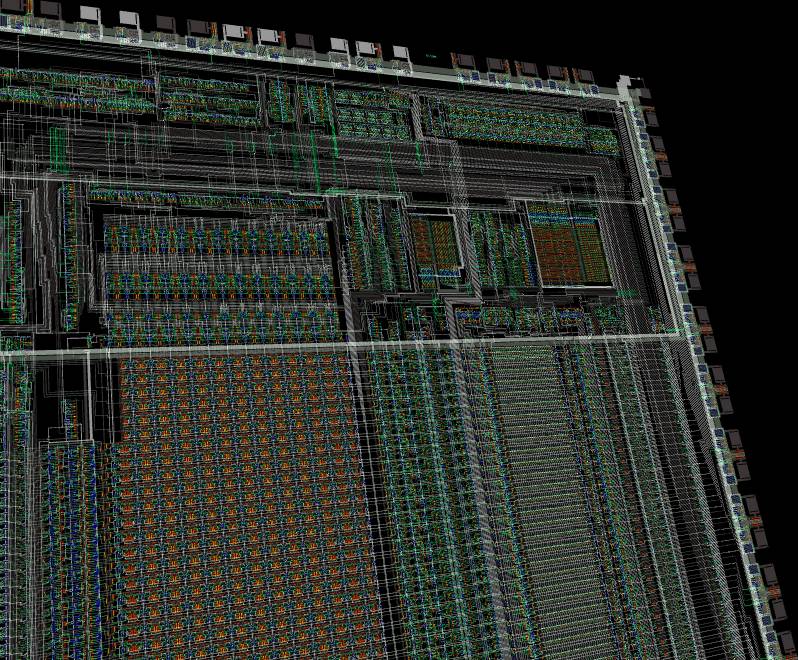Fujitsu's A64FX Successor Will Be An Arm-based Datacenter Chip

Fujitsu's Arm-based A64FX processor may have driven the most powerful supercomputer in the world, but it looks like its successor will be a more general-purpose chip that will focus on energy efficiency.
The Japanese IT giant built its own Arm processor for use in the Fugaku supercomputer, and commercialized it in the PRIMEHPC FX1000 and FX700 systems, as well as HPE using the chip in its Apollo 80 high-performance computing (HPC) platform.
'Overwhelming energy efficiency'
Fujitsu disclosed a successor chip during its recent ActivateNow: Technology Summit at the Computer History Museum in Mountain View, California. In a presentation given by Vivek Mahajan, there was mention of an "Arm-based CPU for Next-gen DC" slated for 2028.
We asked the company for further details on this processor, and it told us the chip is currently code-named MONAKA and expected to be released in 2027. It is planned to deliver higher performance with lower energy consumption, as well as contributing to "the realization of a carbon-neutral and sustainable society."
According to information seen by The Register, MONAKA is expected to not only boost traditional HPC workloads, but also provide high performance for AI and data analytical workloads.
However, at the same time the chip is forecast to provide "overwhelming energy efficiency" when compared with rival CPUs that will be available within the same timeframe, with Fujitsu indicating that MONAKA should have a 1.7x lead in application performance while offering 2x the performance per watt.
The development of MONAKA is part of a program overseen by Japan's New Energy and Industrial Technology Development Organization (NEDO) research agency, which aims to deliver energy savings of 40 percent or better in datacenters by 2030.
As well as contributing to this by developing an energy-efficient CPU, Fujitsu said it will collaborate on related technologies, such as low power consumption accelerators, photonics-based smart NICs, and disaggregation technology.
It thus seems that MONAKA will be less like the A64FX and perhaps more like the Arm-based server chips from Ampere, although these are aimed at cloud providers and hyperscalers and so are more focused on delivering full utilization rather than strictly saving energy.
"The next-generation DC CPU (MONAKA) that we're developing will have a wider range of features and will prove more energy efficient," a Fujitsu spokesperson told us.
"The range of potential applications is wider than that of the A64FX, which has special characteristics (e.g., interconnects) specific to Fugaku," the spokesperson added.
These special characteristics of the A64FX include the 28Gbps Tofu-D interconnect, high-speed HBM2 stacked memory, and the 512-bit Scalable Vector Extensions. It is unlikely that these will feature in MONAKA, although Fujitsu has few specific details to share on the architecture at this point.
- Arm China lays off staff amid chip war and licensing concerns
- Chipmakers threaten to defect to US, EU if UK doesn't get its semiconductor plans sorted
- SambaNova's AI paired with Fugaku supercomputer to develop 'digital twins'
- The Balthazar laptop: An all-European RISC-V Free Hardware computer
In other Arm-related news, the company is now listing on the New York Stock Exchange later this year, as confirmed on Friday. This means the efforts by British politicians to encourage Arm-parent Softbank to list in London as well were seemingly in vain.
In addition, the FT last week reported that Chinese authorities are hindering moves by Arm to offload its troubled joint venture, Arm China. It cites anonymous sources claiming that Chinese officials declined to process documents for Arm China's transfer to a new SoftBank Vision Fund entity, apparently in efforts to keep Arm as its largest shareholder. ®
From Chip War To Cloud War: The Next Frontier In Global Tech Competition
The global chip war, characterized by intense competition among nations and corporations for supremacy in semiconductor ... Read more
The High Stakes Of Tech Regulation: Security Risks And Market Dynamics
The influence of tech giants in the global economy continues to grow, raising crucial questions about how to balance sec... Read more
The Tyranny Of Instagram Interiors: Why It's Time To Break Free From Algorithm-Driven Aesthetics
Instagram has become a dominant force in shaping interior design trends, offering a seemingly endless stream of inspirat... Read more
The Data Crunch In AI: Strategies For Sustainability
Exploring solutions to the imminent exhaustion of internet data for AI training.As the artificial intelligence (AI) indu... Read more
Google Abandons Four-Year Effort To Remove Cookies From Chrome Browser
After four years of dedicated effort, Google has decided to abandon its plan to remove third-party cookies from its Chro... Read more
LinkedIn Embraces AI And Gamification To Drive User Engagement And Revenue
In an effort to tackle slowing revenue growth and enhance user engagement, LinkedIn is turning to artificial intelligenc... Read more

